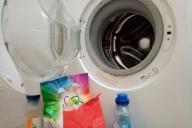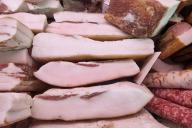Headaches can significantly reduce the quality of life, interfering with work, rest and communication with loved ones.
Often the cause of migraines or other types of headaches are the foods we eat every day.
Understanding which foods can trigger pain can help you avoid unwanted symptoms and maintain good health. What foods should you avoid if you are prone to headaches?

Chocolate: A Treat With Side Effects
Chocolate is one of the most popular foods that can cause headaches.
Tyramine, which is found in chocolate, is a known migraine trigger. Chocolate also contains caffeine and phenylethylamine, which can cause vasoconstriction and trigger pain. People who suffer from migraines are advised to limit their chocolate consumption or eliminate it from their diet completely.
Caffeine: Friend and Foe at the Same Time
Caffeine in moderate doses can help relieve headaches, but excessive consumption can have the opposite effect.
Regular consumption of coffee, tea or energy drinks with high caffeine content can lead to addiction and trigger so-called "rebound" headaches.
People prone to migraines should monitor their caffeine intake and avoid large amounts.
Cheese: The Hidden Threat
Cheese, especially aged cheese, contains tyramine, which can trigger headaches. The longer the cheese is aged, the higher the concentration of this substance.
Hard cheeses such as cheddar, parmesan, and roquefort are particularly dangerous in this regard. If you are prone to migraines, try to avoid or minimize your consumption of these cheeses.
Processed Meat: Hidden Additives
Sausages, hot dogs, bacon and other processed meats often contain preservatives such as nitrates and nitrites, which can trigger headaches.
These chemicals cause blood vessels to dilate and can lead to pain. Additionally, processed meats often contain additives and flavorings that can also be migraine triggers.
Alcohol: Not Just Relaxation
Alcohol, especially red wine, is a common cause of headaches. This is due to the presence of various chemical compounds in alcohol, such as tyramine, histamine, and sulfites.
These substances can cause vasodilation and lead to migraines. If you are prone to headaches, you should reduce your alcohol consumption or avoid it completely.
Monosodium Glutamate: An Additive with Consequences
Monosodium glutamate (MSG) is a food additive used to enhance the flavor of many foods, especially in Asian cuisine, prepared meals, and snacks.
In some people, MSG can cause severe headaches, as well as other unpleasant symptoms such as nausea and sweating.
Check food labels and try to avoid foods containing MSG if you are prone to migraines.
Artificial Sweeteners: A Trap for Sweet Tooths
Artificial sweeteners such as aspartame and sucralose are often used in diet drinks and low-sugar products.
These substances can be headache triggers for some people. Aspartame, which is found in carbonated drinks, gum, and low-calorie desserts, is especially dangerous.
Avoid foods with artificial sweeteners if you frequently experience headaches.
Nuts and Seeds: Not All Are Healthy
Although nuts and seeds are considered healthy foods, they may cause headaches in some people.
Nuts such as almonds, walnuts and peanuts contain tyramine, which can trigger migraines.
If you notice that you get a headache after eating nuts, try eliminating them from your diet and monitor your condition.
Pickled foods: the hidden danger
Pickled and fermented foods, such as pickles, cabbage, and sauerkraut, can contain high levels of histamine and tyramine, which can trigger headaches.
These substances are formed as a result of the fermentation process and may have negative effects on sensitive individuals.
Try to limit your intake of these foods if you are prone to migraines.
Citrus Fruits: Vitamins with Side Effects
Citrus fruits such as oranges, lemons and grapefruits can be headache triggers for some people.
This is due to the presence of histamine and tyramine, which can trigger migraines. Although these fruits are rich in vitamins and are good for health, if you often suffer from headaches, you should reduce their consumption.
Earlier we reported that in Hong Kong they created a medicine that triggers the self-destruction of cancer cells.








